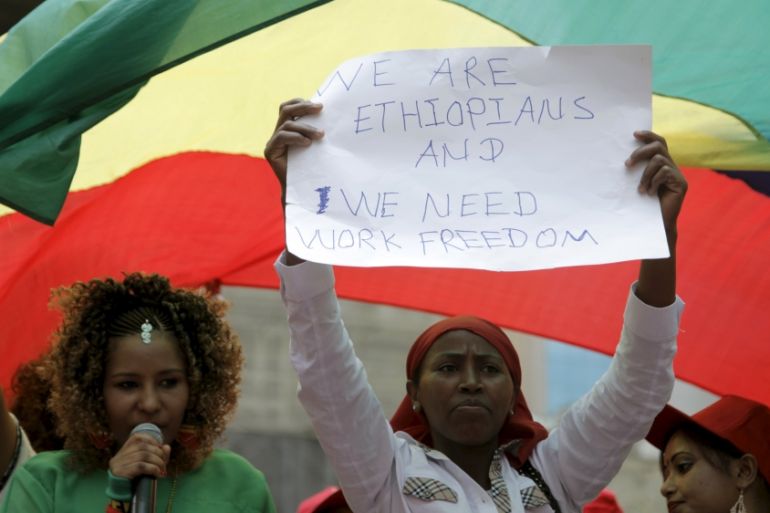Amnesty calls on Lebanon to end ‘abusive’ sponsorship system
The UK-based rights group called on the Lebanese government to end the migration sponsorship system known as kafala.

Amnesty International on Wednesday urged Lebanon to end what it described as an “inherently abusive” migration sponsorship system governing the lives of tens of thousands of foreigners working in private homes.
Domestic workers in Lebanon are excluded from the labour law, and instead obtain legal residency through their employers’ sponsorship under the so-called “kafala” system.
Keep reading
list of 4 itemsMSF suspends work in Haiti emergency centre after armed group kills patient
‘It gave me a purpose’: Surf therapy transforms lives in South Africa
British-Ghanaian boxer Joshua Buatsi: ‘I can’t be the only one benefitting’
But activists say this leaves maids, nannies and caretakers at the mercy of their employers and unable to leave without their permission, including in numerous documented cases of abuse.
“Amnesty International is calling on the Lebanese authorities to end the kafala system and extend labour protections to migrant domestic workers,” the UK-based rights group said.
“The Lebanese parliament should amend the labour law to include domestic workers under its protection,” including to allow them to join unions, the group said.
‘So hungry’
Lebanon hosts more than 250,000 registered domestic workers from countries in Africa and Asia, the vast majority of them women.
In a report released on Wednesday titled Their house is my prison, Amnesty surveyed 32 domestic workers employed mostly in and around Beirut, revealing “alarming patterns of abuse”.
Among them, 10 women said they were not allowed to leave their employer’s house, with some saying they were locked in.
Twenty-seven said their employers had confiscated their passports.
Many worked overtime, 14 were not allowed a single day off each week, and several had their monthly salaries revoked or decreased, despite it being a breach of their contracts.
|
|
The labour ministry introduced a standard contract for domestic workers in 2009, but the forms are often written in Arabic, a language they cannot read.
The government in late 2018 said it had translated the contracts into several other languages.
Amnesty registered eight cases of forced labour and four of human trafficking, the report said.
Six reported severe physical abuse, while almost all had been subjected to humiliating treatment and several were deprived of food.
“Sometimes I would get so hungry … I used to mix water with sugar when I was hungry and drink it,” one worker said.
‘I never go out’
With the abuse taking a toll on their mental health, six said they had contemplated or attempted suicide.
Only four of those interviewed had private rooms, while the rest were relegated to living rooms, storage rooms, kitchens or balconies.
“There is a man in the house who can enter the living room any time he wants,” said one worker who was forced to sleep in the living room.
If a worker refuses their employers’ conditions, they risk losing their residency status and would thus face a risk of detention and deportation. According to Amnesty, this virtually grants employers “almost total control” over the lives of their employees.
“I wasn’t allowed to talk to anyone. If I opened the window and waved to other Filipinas, she [employer] would pull my hair and beat me,” one female worker’s testimony read.
“For three years she locked me in the house. I never got out.”
Activists accuse the Lebanese authorities of being lax in bringing abusive employers to account.
Ethiopia and the Philippines have banned their citizens from domestic work in Lebanon, but their citizens find ways to get to the country.
In 2008, Human Rights Watch found that migrant domestic workers in Lebanon were dying at a rate of more than one every week from suicide or in failed escapes.